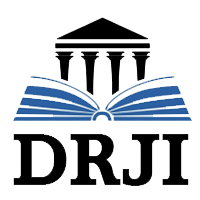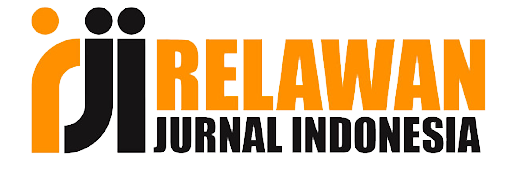The Role of Meaningful Work as a Mediation of Political Organizations on Employee Engagement
Abstract
Employee engagement can generate benefits for the organization and lead to positive work outcomes. However, sometimes the application of organizational politics can affect performance. Thus, meaningful work is needed for employees. The aim of this research is to examine the role of meaningful work mediation on the influence of political organizations on employee engagement. This study used a quantitative method with a cross-sectional survey design. The sample of this research is 317 employees obtained using convenience sampling technique. The scale in this study consists of employee engagement, meaningful work, and political organizations using a five-point Likert model. The results obtained in this study are significant meaningful work mediating the influence of political organizations on employee engagement. This study contributes as reference material in implementing interventions to increase employee engagement in order to gain benefits for the organization.
Keterlibatan karyawan dapat menghasilkan manfaat bagi organisasi dan mengarah pada hasil kerja yang positif. Namun, terkadang penerapan politik organisasi dapat mempengaruhi kinerja. Sehingga, diperlukan kebermaknaan kerja bagi para karyawan. Adapun tujuan dalam penelitian yaitu menguji peran mediasi meaningful work pada pengaruh political organizations terhadap employee engagement. Penelitian ini menggunakan metode kuantitatif dengan desain survei cross-sectional. Sampel penelitian ini sebanyak 317 karyawan yang diperoleh menggunakan teknik convenience sampling. Skala dalam penelitian ini terdiri dari skala employee engagement, meaningful work, dan political organizations dengan menggunakan model likert lima point. Hasil yang diperoleh dalam penelitian ini yaitu meaningful work signifikan memediasi pengaruh political organizations terhadap employee engagement. Studi ini berkontribusi sebagai bahan referensi dalam menerapkan intervensi untuk meningkatkan employee engagement guna memperoleh keuntungan bagi organisasi.
Keywords
Full Text:
PDFReferences
Albrecht, S. (2010). Employee engagement: ten key research questions. In Handbook of Employee Engagement: Perspectives, Issues, Research and Practice (Eds), S. L. Albrecht. Edward Elgar.
Albrecht, S. L., & Su, M. J. (2012). Job resources and employee engagement in a Chinese context: The mediating role of job meaningfulness, felt obligation and positive mood. Int. J. Business Emerg. Mark, 4, 277–292. https://doi.org/10.1504/IJBEM.2012.049823
Albrecht, S. L. (2013). Work engagement and the positive power of meaningful work. In Advances in Positive Organizational Psychology (Eds), A. B. Bakker. Emerald Group Publishing.
Albrecht, S. L. (2015). Meaningful work: Some key questions for research and practice. In Flourishing in Life, Work, and Careers: Individual Wellbeing and Career Experiences, eds R. J. Burke, K. M. Page, and C. L. Cooper (Cheltenham: Edward Elgar), 210–234. https://doi.org/10.4337/9781783474103.00021
Albrecht, S. L., & Su, M. J. (2012). Job resources and employee engagement in a Chinese context: the mediating role of job meaningfulness, felt obligation and positive mood. Int. J. Business Emerg. Mark. 4, 277–292. https://doi.org/10.1504/IJBEM.2012.049823
Bakker, A. B., & Demerouti, E. (2007). The job demands-resources model: State of the art. J. Manag. Psychol, 22, 309–328. https://doi.org/10.1108/02683940710733115
Byrne, Z. S., Manning, S. G., Weston, J. W., & Hochwarter, W. A. (2017). All roads lead to well-being: Unexpected relationships between organizational politics perceptions, employee engagement, and worker well-being. In Power, Politics, and Political Skill in Job Stress: Research in Occupational Stress and Wellbeing (Eds), C. Rosen and P. Perrewé. Emerald Publishing.
Carter, W. R., Nesbit, P. L., Badham, R. J., Parker, S. K., & Sung, L.- K. (2016). The effects of employee engagement and self-efficacy on job performance: A longitudinal field study. Int. J. Hum. Res. Manag. 29, 2483–2502.
Chang, C., Rosen, C. C., & Levy, P. E. (2009). The relationship between perceptions of organizational politics and employee attitudes, strain, and behavior: A meta-analytic examination. Acad. Manag. J. 52, 779–801.
Crawford, E. R., LePine, J. A., & Rich, B. L. (2010). Linking job demands and resources to employee engagement and burnout: A theoretical extension and meta-analytic test. J. Appl. Psychol. 95, 834–848. https://doi.org/10.1037/a0019364
Hochwarter, W. A., Kacmar, K. M., Perrewé, P. L., & Johnson, D. (2003). Perceived organizational support as a mediator of the relationship between politics perceptions and work outcomes. J. Vocat. Behav. 63, 438–456.
Hochwarter, W. A., & Thompson, K. R. (2010). The moderating role of optimism on politics-outcomes relationships: A test of competing perspectives. Hum. Relat. 63, 1371–1394. https://doi.org/10.1177/0018726709357250
Kacmar, K. M., & Baron, R. A. (1999). Organizational politics: The state of the field, links to related processes, and an agenda for future research. In Research in Personnel and Human Resources Management (Eds), J. Ferris. JAI Press.
Kahn, W. A. (1990). Psychological conditions of personal engagement and disengagement at work. Acad. Manag. J. 33, 692–724. https://doi.org/10.5465/256287
Kahn, W. A., & Heaphy, E. D. (2014). Relational contexts of personal engagement at work. In Employee Engagement in Theory and Practice (Eds), C. Truss, R. Delbridge, K. Alfes, A. Shantz, and E. Stone. Routledge.
Kane-Frieder, R. E., Hochwarter, W. A., & Ferris, G. R. (2014). Terms of engagement: political boundaries of work engagement-work outcomes relationships. Human Relations 67, 357–382. https://doi.org/10.1177/00187267134950
Karatepe, O. M. (2013). Perceptions of organizational politics and hotel employee outcomes: the mediating role of work engagement. Int. J. Contemp. Hospital. Manag. 25, 82–104. https://doi.org/10.1108/09596111311290237
Landells, E., & Albrecht, S. L. (2016). Organizational politics and a maturity model: An integration and extension of existing models and dimensions. In Handbook of Organizational Politics, Second Edition, Looking Back and to the Future (Eds), A. Drory and E. Vigoda-Gadot. Edward Elgar.
Landells, E., & Albrecht, S. L. (2017). Positive politics, negative politics and engagement: The ‘black box’ of psychological safety, meaningfulness and availability. In Power, Politics, and Political Skill in Job Stress: Research in Occupational Stress and Wellbeing (Eds), C. Rosen and P. Perrewé. Emerald Publishing.
Landells, E. M., & Albrecht, S. L. (2019). Perceived organizational politics, engagement, and stress: The mediating influence of meaningful work. Frontiers in psychology, 10(1612), 1–12. https://doi.org/10.3389/fpsyg.2019.01612
Macey, W. H., & Schneider, B. (2008). The meaning of employee engagement. Ind. Organ. Psychol. Perspec. Sci. Prac. 1, 3–30. https://doi.org/10.1111/j.1754-9434.2007.0002.x
May, D. R., Gilson, R. L., & Harter, L. M. (2004). The psychological conditions of meaningfulness, safety and availability and the engagement of the human spirit at work. J. Occup. Organ. Psychol. 77, 11–37. https://doi.org/10.1348/096317904322915892
Miller, B. K., Rutherford, M. A., & Kolodinsky, R. W. (2008). Perceptions of organizational politics: a meta-analysis of outcomes. J. Business Psychol. 22, 209–222. https://doi.org/10.1007/s10869-008-9061-5
Schaufeli, W. B., Salanova, M., González-Roma, V., & Bakker, A. B. (2002). The measurement of engagement and burnout: A two sample confirmatory factor analytic approach. J. Happiness Stud. 3, 71–92. https://doi.org/10.1023/A:1015630930326
Schaufeli, W. B., Shimazu, A., Hakanen, J., Salanova, M., & De Witte, H. (2017). An ultra-short measure for work engagement: The UWES-3 validation across five countries. European Journal of Psychological Assessment, 1–15.
Spreitzer, G. M. (1995). Psychological empowerment in the workplace: Dimensions, measurement, and validation. Academy of management Journal, 38(5), 1442–1465. https://doi.org/10.5465/256865
Vigoda-Gadot, E., & Talmud, I. (2010). Organizational politics and job outcomes: The moderating effect of trust and social support. J. Appl. Soc. Psychol, 40, 2829–2861. https://doi.org/10.1111/j.1559-1816.2010.00683.x
DOI: https://doi.org/10.24176/perseptual.v9i1.11389
Refbacks
- There are currently no refbacks.

Jurnal Psikologi Perseptual (eISSN 2580-9520) is licensed under a Creative Commons Attribution-ShareAlike 4.0 International License














